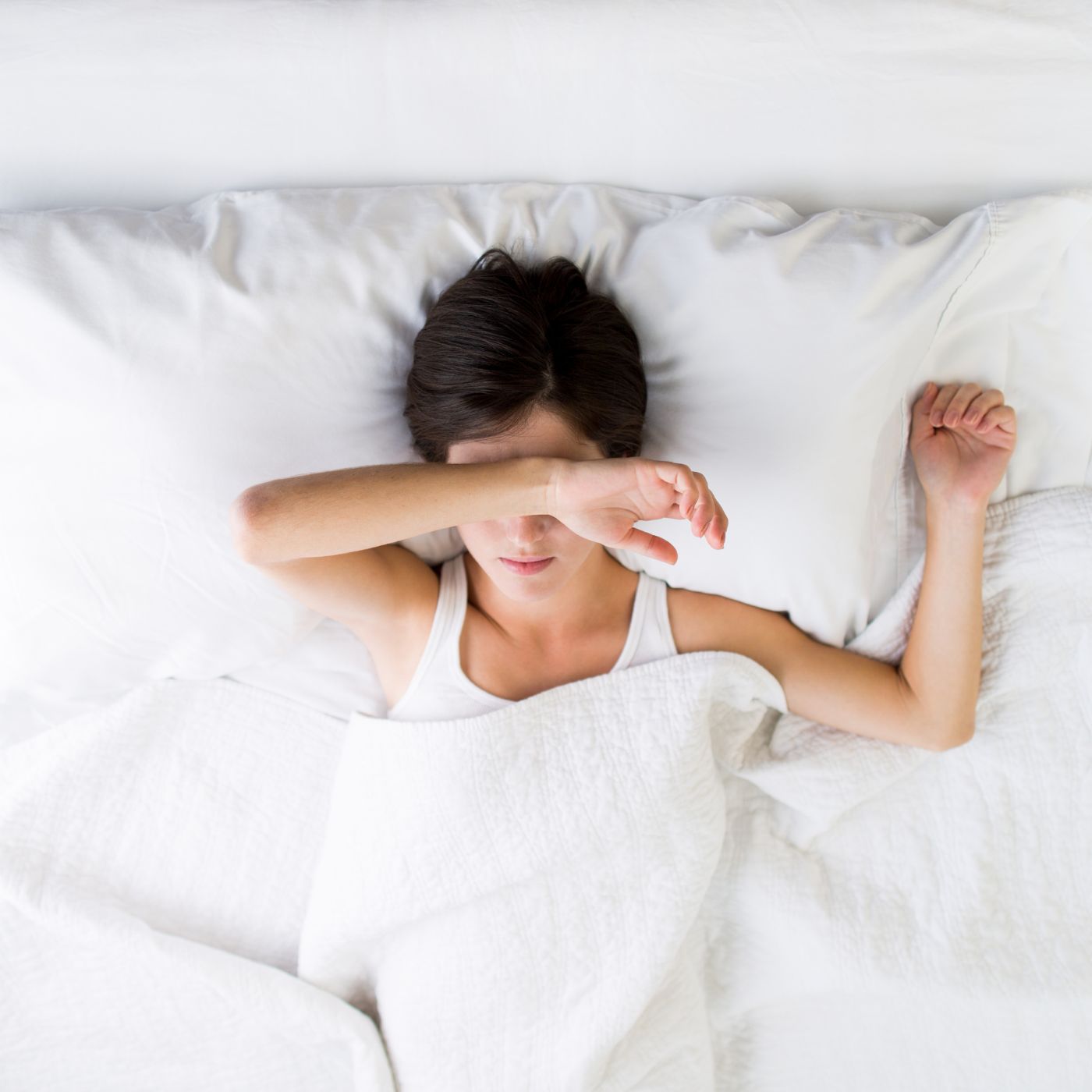
It’s common knowledge that most of us don’t get enough sleep. Especially around the holiday season, when life may seem a little more crazy and stressful than usual.
What most people don’t realize is that the hours we spend asleep are actually just as beneficial, if not more so, as your skincare routine.
During the day, your skin cells are in defence mode, doing their best to protect themselves from UV exposure and free radical damage. When the sun goes down, your mind and body switch into an active regeneration mode – repairing daytime damage and boosting the production of substances that protect and renew.
In short, quality sleep is crucial to both skin health.
Here’s what happens while you snooze away:
- Melatonin, known for its antioxidant (a.k.a. anti-aging) properties, is produced at night.
- Levels of the stress hormone cortisol fall during sleep, which helps your skin repair damage done during the day.
- The body produces more collagen, which minimizes fine lines.
- More human growth hormone is released, increasing muscle mass and strengthening your skin.
So now you know why you should be getting the right amount of sleep (usually between 7-9 hours), but the big question is, how?
Our top tips and tricks to fall asleep faster, and sleep longer
#1. Skip the caffeine
Stay calm, we don’t mean all together! But the fact is, caffeine is a stimulant. Caffeine can stay in your system for about 6 hours, so you shouldn’t have any past mid afternoon, at the latest!
#2. Alcohol is not great, either
Hold it - alcohol is a depressant, right? Surely we can have that to help us fall asleep?
You’re going to think we’re party-poopers, but in the long run (say, around 3am), alcohol is going to affect the quality of your sleep.
It may help send you off to sleep initially, but you will feel less rested in the morning.
Why? Alcohol can worsen snoring and sleep apnea and interfere with your oxygen intake altogether. Plus, it can inhibit the production of melatonin, which we mentioned earlier, is the chemical your body releases to prepare you for sleep.
#3. Get some rays (of sunshine)
Sounds a little backwards, right? Stay with us. The human body functions in cycles, known as circadian rhythms, matching to day and night time. Basically, our bodies are hardwired to set our sleep cycles by the sun, helping us to feel alert during the day and sleepy as the sun goes down. But first, your body needs to know it is daytime!
Studies show that getting outside into some sunlight can reduce sleep disturbances by an hour, and improve sleep efficiency by 13%.
#4. Try some essential oils
Ah, now we’re getting to the good stuff. Scents such as lavender, patchouli and sandalwood have long been known for their anxiety-releasing and sleep-inducing properties. Use a pillow spray or rubbing oil to massage over your chest and hands as you get ready for bed. Breathe deep!

#5. Prepare for the next day
This can include things like packing your lunch or breakfast ready to grab in the morning, laying out work clothes, packing your gym bag or writing down a to-do list or a general brain dump for the next day. Now you can go to bed knowing that you are prepared for the next day.
#6. Create a routine
By making solid bedtime habits, you are signalling to your brain to wind down. This can include a hot shower, a warm beverage (decafe, hopefully), going through your nightly skincare routine, getting into your pyjamas and writing in a journal. Whatever it is that will help you relax and unwind.
#7. Create a sleeping sanctuary
All the lead up is not going to be much help if your bedroom is chaos, or just a non-relaxing, comfortable place. Turn off all screens (away from the bed, if you can!) - this includes watching TV in bed, that cheeky 5 minute (or, er, 2 hour) Instagram scroll before tucking in, or a quick check of your work emails on your laptop.
Try to remove or block out any ambient light, and cancel out any noise. These can be tough, depending on where you live, but things like blackout curtains and white-noise apps are great ideas to try.
#8. Get in a workout
With so many benefits, any form of exercise is going to do you a world of good.
People who exercise regularly sleep better at night and feel less sleepy during the day. Regular exercise also improves the symptoms of insomnia and sleep apnea and increases the amount of time you spend in the deep, restorative stages of sleep.
The more vigorously you exercise, the more powerful the sleep benefits. But even light exercise—such as walking for just 10 minutes a day—improves sleep quality.
It can take several months of regular activity before you experience the full sleep-promoting effects. So be patient and focus on building an exercise habit that sticks.
Keep in mind that moderate to vigorous exercise speeds up your metabolism, elevates body temperature, and stimulates hormones such as cortisol (all good things) but just not too close to bedtime. Try to keep this kind of exercise at least 3 hours before planning to go to bed.
Light stretching/yoga before bed can help promote sleep, though, so go ahead with that.
#9. Dinner time
Avoid big meals at night. Yes, we know this can be tough if you have a big holiday meal planned with your family.
Try to make dinnertime earlier in the evening, and avoid heavy, rich foods within two hours of bed. Spicy or acidic foods can cause stomach trouble and heartburn. Additionally, if your body is busy trying to digest a large meal as you’re trying to sleep, this can keep you awake.
Avoid drinking too many liquids in the evening. Drinking lots of fluids may result in frequent bathroom trips throughout the night.
#10. 3 ways to fall back asleep
If you find yourself waking up in the middle of the night, try these few tricks to fall back asleep.
-
Hard as it may be, try not to stress over your inability to fall asleep again, because that stress only encourages your body to stay awake. To stay out of your head, focus on the feelings in your body or practice breathing exercises. Take a breath in, then breathe out slowly while saying or thinking the word, “Ahhh.” Take another breath and repeat.
-
Do a quiet, non-stimulating activity. If you’ve been awake for more than 15 minutes, get out of bed and do a quiet, non-stimulating activity, such as reading a book. Keep the lights dim and avoid screens so as not to cue your body that it’s time to wake up.
-
Postpone worrying and brainstorming. If you wake during the night feeling anxious about something, make a brief note of it on paper and postpone worrying about it until the next day when it will be easier to resolve. Similarly, if a great idea is keeping you awake, make a note of it on paper and fall back to sleep knowing you’ll be much more productive after a good night’s rest.
Master the art of sleep, and your skin will do the work for you, while you slumber! Of course, it’s always a good idea to help things along with a good skincare routine, designed to repair damage and promote healthy skin, like our standalone Ageless Routine.
